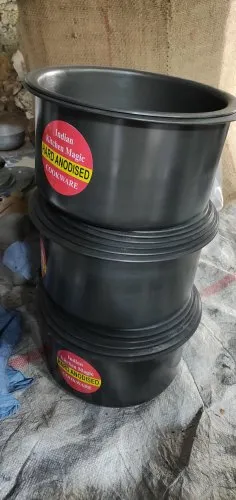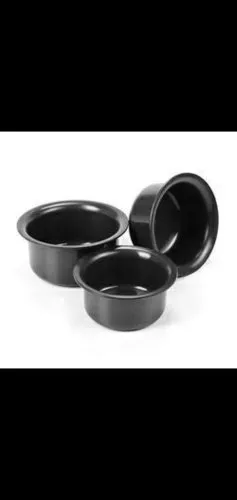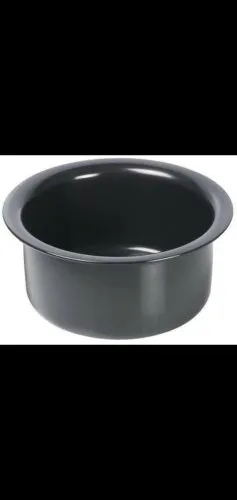Hard Anodized Aluminium Tope
₹475.0
| Size | 10-18 |
| Color | Black |
| Types Of Utensils | Bhagona |
| Finishing | Hard anodized plus induction |
| Design | Modern |
| Coating | Hard anodized |
| Surface Treatment | Black hard anodized |
| Product Code | 7615 |
| Tensile Strength | High |
| Grade | wire aluminium |
| Microwave Safe Y N | No |
| Packaging Type | Jute bag |
| With Copper Base | No |
| 10-18 | 12 gauge |
Our hard anodized plus induction tope makes cooking easy as hard anodized surface makes it easier and faster to cook , high in quality and lesser price makes it even more worthy productInduction base serves as eco friendly way of cooking too.
- Description
- Additional information
- Reviews (0)
- Q & A
- Sustainability Remark
- More Offers
- Store Policies
- Inquiries
| Color | Black |
|---|
You must be logged in to post a review.
Q & A
The sustainability of an aluminium can or container depends on several factors, including the materials used, the manufacturing process, and the end-of-life management.
Aluminium is a highly sustainable material due to its unique properties. It is lightweight, durable, and infinitely recyclable, which means it can be recycled repeatedly without losing its properties. Additionally, recycling aluminium requires significantly less energy compared to producing it from raw materials, resulting in lower greenhouse gas emissions.
However, the sustainability of aluminium cans or containers can be compromised if the manufacturing process involves harmful chemicals or excessive energy consumption. The sourcing of raw materials, such as bauxite, can also impact the sustainability of the product if it involves deforestation, land degradation, or social issues.
End-of-life management is also crucial for ensuring the sustainability of aluminium cans or containers. Recycling should be prioritized to minimize waste and conserve resources. Proper disposal and recycling practices, such as separating aluminium from other materials and ensuring it is clean and free from contaminants, can maximize the recovery and reuse of the material.
In summary, the sustainability of aluminium cans or containers depends on a range of factors, including the materials used, the manufacturing process, and the end-of-life management. By prioritizing sustainable practices throughout the entire lifecycle of the product, the environmental impact of aluminium cans and containers can be minimized.
General Inquiries
There are no inquiries yet.



















Reviews
There are no reviews yet.